Queerty takes a look back at some of the most famous, perhaps infamous, occasions when actresses beloved by the LGBTQ community were snubbed by the Oscars…
Judy Garland, The Wizard of Oz (1939)
Judy Garland did receive a “Juvenile Academy Award,” some sort of honorary tribute, recognizing her for her contributions to film in 1939 for her roles in The Wizard of Oz and Babes In Arms. And perhaps she enjoyed receiving the honor. But she did not receive any actual nominations for the award, which she certainly deserved, considering she starred in The Wizard of Oz at the young age of 17 and managed to craft one of the most identifiable performances in American cinematic history. Nor did she receive any Academy recognition until 20 movies later, for A Star Is Born (1954), for which she was nominated for Best Actress. Garland also was nominated for Best Supporting Actress for Judgment at Nuremberg (1962).*
Joan Crawford, The Women (1939)
Joan Crawford is the most recognizable name in the cast of The Women, mostly because countless gay men have performed satirical drag portrayals of Faye Dunaway playing Joan Crawford in the ridiculous and hilarious Mommie Dearest. But really the tragedy here is not just Crawford’s absence from the Academy nominations for that year, but the Academy did not nominate any of the actresses in The Women. This superb movie earned a place in history for being the first major studio production with a cast entirely of women, and it is a must-see for fans of classic Hollywood, both for its snappy acting and writing and also the glamour factor of an era of filmmaking gone by. The Women was remade in 2008, but don’t bother watching it, that version was dreadful. As for Crawford, she did win a Best Actress Oscar for Mildred Pierce (1945), and was nominated again as Best Actress for Possessed (1947) and Sudden Fear (1952).
Barbra Streisand, Yentl (1983)
Before Barbra Streisand starred in Yentl, she had already been nominated twice for Best Actress Oscars, for Funny Girl (1969) and The Way We Were (1974). She won for Funny Girl, in a rather unusual tie with Katharine Hepburn, who also won for her role in The Lion In Winter. But with Yentl, she was ignored by the Academy—not only as the lead actress, but she had also directed the movie, in an era when women simply did not get hired as directors of major motion pictures. The absence of any Academy recognition for Streisand in Yentl was quite the scandal at the time, especially since Streisand had won Best Director at The Golden Globes earlier that year, the first female to win that award. Unfortunately the bad feelings continued: Streisand was snubbed again for The Prince of Tides (1991), a film she again was both the lead actress and the director. The Prince of Tides received 7 Oscar nominations, including Best Actor (Nick Nolte) and Best Supporting Actress (Kate Nelligan), but no nominations for Streisand.
Cher, Mask (1985)
Of all the gay icons snubbed by The Academy, Cher’s performace in Mask is perhaps the most famous. Playing Rusty Dennis, the mother of a charming and brilliant teen with startling physical deformities, Cher created a character who was unapologetically promiscuous, brazenly tempermental, at times somewhat selfish, but ultimately ferociously defensive of her beloved child. Although Rusty certainly had flaws, Cher turned those flaws into elements of the character’s humanity and delivered what will probably live as the finest performance of her career. Cher had already received an Oscar nod for Best Supporting Actress for Silkwood (1983), so she was no stranger to the Academy, so why they ignored her performance in Mask was a mystery. They seemed to recognize their mistake and apologize, by giving her the award for Best Actress for Moonstruck (1987), a character not nearly as exciting or remarkable as her role in Mask.
Sally Field, Steel Magnolias (1989)
How is it possible Sally Field did not receive an Oscar nomination as Best Actress for Steel Magnolias? Before she played the wise and weepy Southern matriarch M’Lynn, Field had already won Oscars for Norma Rae (1979) and Places In The Heart (1984), but the only Academy attention given to Steel Magnolias was for Julia Roberts, who was nominated for Best Supporting Actress. (It is also hard to argue how Roberts out-performed the other actresses in the film, including Shirley MacLaine, Olympia Dukakis, Dolly Parton and Daryl Hannah.) But it matters not. Walk into any gay bar and say “Drink your juice, Shelby,” and you’ll be greeted with smiles all around. Long live M’Lynn.
Sigourney Weaver, The Ice Storm (1997)
Sigourney Weaver was already beloved by gay men, thanks to her deliciously diabolical turn as executive sociopath Katherine Parker in Working Girl (1989), and her general bad-assness as an interplanetary commando in Aliens (1987), both of which earned her Oscar nominations, in addition to her Oscar nomination for Gorillas In The Mist (1989). But her role in Ang Lee’s The Ice Storm, a gorgeous 1970’s period film about upper middle-class angst, was ignored by the Academy. In The Ice Storm, Weaver plays Janey Carver, a horny housewife who seems determined to bring the American Sexual Revolution to her boring suburban neighborhood, although doing so with somewhat selfish motives. The movie boasted stellar performances from the entire cast (Joan Allen makes everything better), but the stand-out was Weaver’s portrayal of restrained, steely and occasionally brash Janey, whose actions spoke much louder than her words, every sideways glance rife with meaning. Still waters run deep, as the say. Not every performance has to be big, and this one proved less is often more.
Björk, Dancer In The Dark (2000)
Casual viewers may presume Björk was nominated for an Oscar for her performance in Dancer In The Dark, because she famously attended The Academy Awards that year, where she wore a certain fowl-inspired dress and had her photo taken by every photographer on the red carpet. However, Björk attended that year only because Dancer In The Dark was nominated for Best Original Song. Her performance as the lead actress in the movie, widely heralded by critics as revolutionary and earning her the Best Actress award at the 2000 Cannes Film Festival, was ignored by the Academy. That decision was more confusing than Björk’s decision to wear the weird dress. Dancer In the Dark, a “musical drama” about murder, justice, and the binds of loyalty, was both exhilarating and exhausting, not only for the viewer but also for Björk herself; after the movie premiered, she was quoted several times saying she hated the experience and would never act in a movie again. Of course, she has made appearances in projects occasionally, and thankfully so. She’s really good.
Oprah Winfrey, The Butler (2013)
Once upon a time, Oprah Winfrey ruled America. Her daytime talk show taught society how to get out of bed in the morning and put some meaning into this thing we call life. But that talk show kept her so terribly busy, it left little time for her to do anything else. Now that her talk show is over, she can pursue other projects, such as acting. She gave us a taste back in 1985 with her Oscar-nominated performance in The Colored Purple. She gave us another nibble in 1989 with her mini-series The Women of Brewster Place, in which she played the lead role. In 2013 she took a role in The Butler (including the moment above with Terrence Howard), for which she was not nominated for an Oscar, but that’s fine. There should be more to come from Oprah. America needs to see her more.
How about we take this to the next level?
Our newsletter is like a refreshing cocktail (or mocktail) of LGBTQ+ entertainment and pop culture, served up with a side of eye-candy.
This post has been updated with photos.










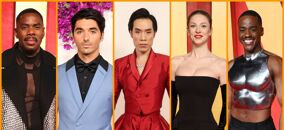
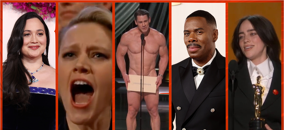

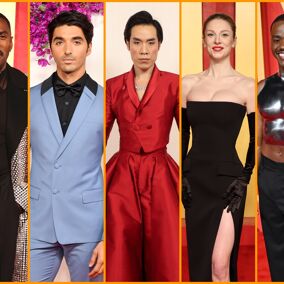
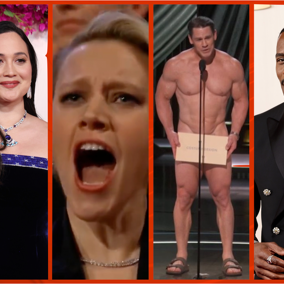
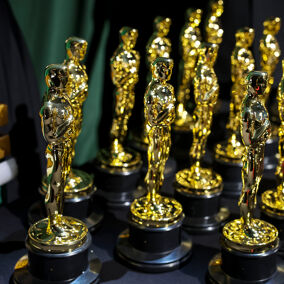
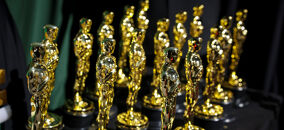
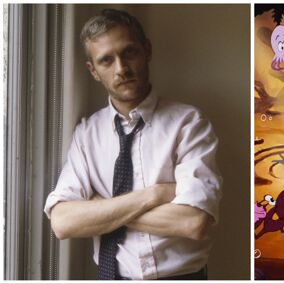
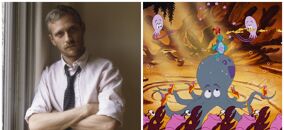
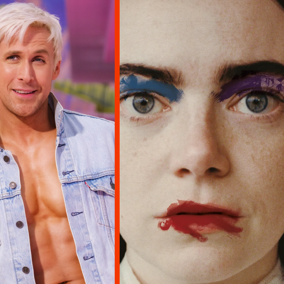
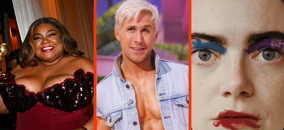
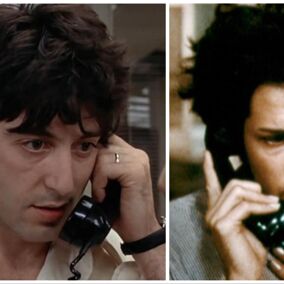
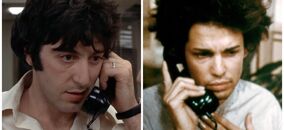
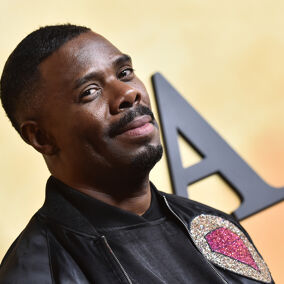
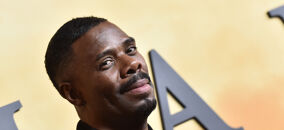
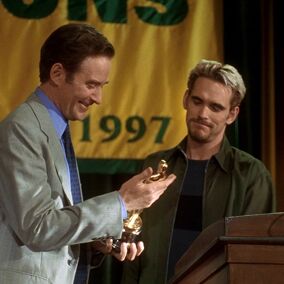
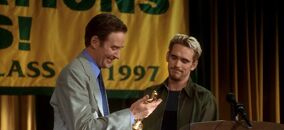
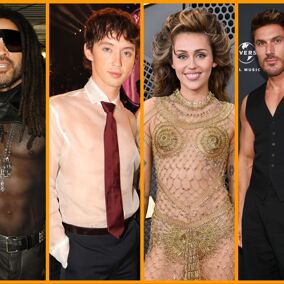
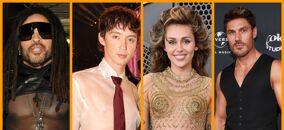






















kiriakis1
When did Kirsten Dunst become a gay icon?
You writers on gay sites seem to regard yourselves as self-appointed arbiters and guardians of gay culture.
You’re not.
Mo Bro
I’m obviously confused as to what constitutes a “gay icon” (but I’m not confused about the fact that none of these women are particularly good actresses, so their lack of Oscar love shouldn’t come as a great surprise).
Jack Meoff
I have never thought of Dunst as a gay icon and I have definitely never considered her a good actress. She did some cute teen stuff back in the day but her adult work has not been exactly note worthy. While I have not seen Hidden Numbers I must admit I was surprised she was in it at all given the calibre of the other actors in the movie.
brandon_dellinger
Um, Judy Garland was NOMINATED for an Oscar for A Star Is Born and Judgement at Nuremberg but she did not win for either role.
Dan Renzi
*Corrected! I will listen to “Judy Live at Carnegie Hall” from beginning to end as penance.
JessPH
I could not agree with more with this article (except for Dunst who’s not a gay icon). Sally Field gave the most memorable performance in Steel Magnolias. Bjork was fantastic in Dancer in the Dark.
Another notable snub is Jane Fonda in Agnes of God (her co-star Anne Bancroft was nominated)
man5996853
Snubbed? Meh. Not really. There were so many incredible performances this year and I don’t think that her role, despite being well performed, was substantial enough to warrant a nomination.
She has been largely overlooked over a very impressive career. Although I didn’t love the film, her performance in Crazy/Beautiful was just stunning. And although she has vocal supported the gays, she hasn’t earned the status of icon. Not even close.
oaklandmachine
Oh, please. Kirsten Dunst was barely a footnote in this movie. The character was an important part of the plot, but her portrayal wasn’t anything to write home about and she wasn’t snubbed. She certainly wasn’t bad, but not amazing either. The way she played it was appropriate: looming racist boss lady who eventually has a change of heart. God forbid the black actresses get a nomination and the white actress doesn’t!
Xzamilloh
Please… the biggest snub for The Color Purple was Whoopi Goldberg, who didn’t win Best Actress.
Brian
Kirsten Dunst is pretty unpopular. I suppose she gets the gay fanbase from Drop Dead Gorgeous and Bring It On, but she’s not truly an “icon.” I love her, though!
I know I’m in the minority here — I enjoyed Marie Antoinette and Melancholia. I think she’s memorable in her bit part in Eternal Sunshine, and she was an endearing Mary Jane in Spiderman. Most of her roles to date have been in the teen/young market, though, and so I don’t think people take her seriously. The supposed snub doesn’t surprise me.
Thomas
Sorry Dan, Dunst is not widely considered a gay-icon as previous commenters have pointed out. I would also add that her portrayal of someone with a mixed attitude toward a fellow colored coworker (initially dismissive, indignant at the suggestion or request for fair consideration, dismissive and insultive of her dignity and then finally, sheepishly acknowledging of her over-qualifications) isnt Oscar-worthy. This is still the pattern of treatment in modern corporate America and as evidenced by the rise in hate crimes in our country.
maximumzer0
I slept through the part where you can’t have an opinion. All these people with all this time to lay out a case for who is NOT a gay icon….ok.
Dunst’s performance of an “effortlessly hateful” racist may seem ho-hum because she’s THAT GOOD. She was tragically believable and stoically flawless.
I’m with you, Dan.
(And thanks for the heads up on when to use “Drink your juice, Shelby”. I can never find a place to fit that in to conversation)
lacrosse72
Another great snub was Faye Dunaway not being nominated for Mommie Dearest.
Winter
What are the actual requirements for being a ”gay icon”?
Being a decent looking woman from Hollywood that once in an interview said she supports the LGBT community? Girl bye.